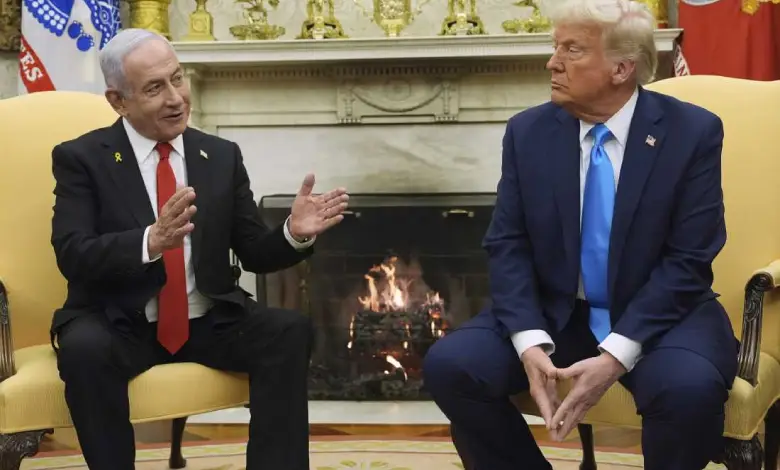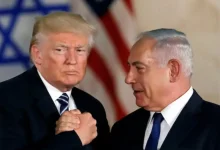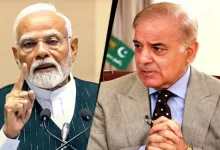Tensions Emerge in Netanyahu-Trump Talks Over Iran, Tariffs, and Turkey

Tel Aviv: Israeli Prime Minister Benjamin Netanyahu visited Washington for an urgent meeting with U.S. President Donald Trump, bringing a slate of concerns including Iran’s nuclear ambitions, rising tariffs, Turkey’s growing influence in Syria, and the ongoing war in Gaza. Despite the significance of the visit, Netanyahu left without major victories—marking a stark departure from his previously successful U.S. engagements.
During their Oval Office meeting on Monday, Trump appeared to downplay or challenge Netanyahu’s main priorities, leading to unease within the Israeli delegation. Publicly, Netanyahu called the trip a “very good visit” and claimed progress on key issues. However, a source familiar with the discussions, speaking anonymously due to diplomatic protocols, suggested the outcome was far less optimistic.
“He didn’t get what he came for,” said Nadav Eyal, a political commentator with Yediot Ahronot. While the tone of the meeting remained friendly, the gaps in strategic alignment were apparent.
The visit came amid rising regional tensions. Israel resumed its military operations in Gaza last month, ending a ceasefire previously supported by Trump. Simultaneously, threats from Iran’s nuclear program have escalated.
Although Trump’s return to office was welcomed by Netanyahu and his supporters, the current dynamic seems less predictable. Trump has installed pro-Israel figures in key roles and distanced his administration from the Biden-era criticism of Israel. However, his latest moves signal a more complex relationship.
One clear divergence appeared on Iran. While Netanyahu continues to favor military deterrence to stop Tehran’s nuclear development, Trump announced forthcoming diplomatic talks with Iran—contradicting Netanyahu’s long-standing position. Netanyahu expressed lukewarm support, suggesting any agreement should resemble Libya’s 2003 deal, which involved full disarmament and unrestricted inspections. It remains uncertain if Trump’s approach will mirror that model.
In terms of trade, Israel had preemptively removed tariffs on U.S. goods in anticipation of Trump’s new global tariff policy, hoping to avoid repercussions. Nevertheless, Israeli exports were still hit with a 17% levy. Netanyahu’s visit was partially aimed at reversing this, but Trump remained unmoved, highlighting the $4 billion in annual U.S. military aid to Israel as a justification.
“We give Israel $4 billion a year. That’s a lot,” Trump said, implying the U.S. already does enough.
Another point of friction involves Syria. With the fall of the Assad regime, Israel and Turkey are vying for influence. Israel has secured a buffer zone near the border, citing new threats from Syria’s Islamist-leaning leadership. Meanwhile, Turkey’s military expansion into Syria has alarmed Israeli officials. Netanyahu warned Tuesday that Turkish bases in Syria pose a direct threat to Israel’s security.
Once regional allies, Israel and Turkey now maintain a tense relationship, worsened by the Gaza conflict. Turkish President Recep Tayyip Erdogan has vocally condemned Israel’s military actions, prompting harsh responses from the Israeli government.
(With PTI Inpiuts)




